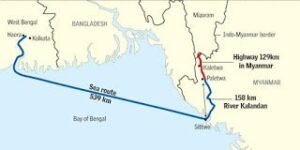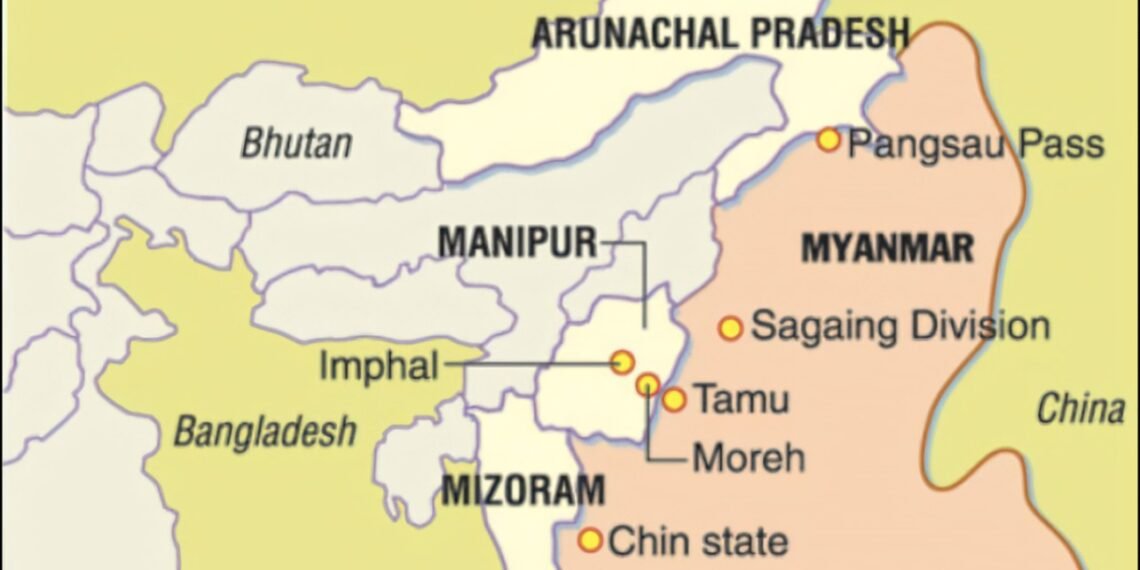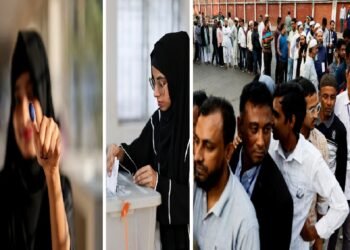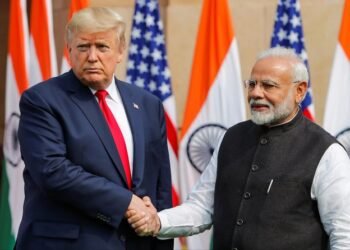- Despite high-level talks between India and Myanmar, instability along the Indo-Myanmar border and armed conflicts in Myanmar make trade revival a daunting challenge. Can diplomacy overcome war?
BY PC Bureau
Reopening road connectivity for trade between India and Myanmar, which was the focus of a high-level meeting in New Delhi last week, remains a formidable challenge as Myanmar battles a civil war and India’s northeastern states, particularly Manipur, faces their own security crises.
Recent talks between India’s Minister of State for Commerce and Industry, Jitin Prasada, and Myanmar’s Deputy Commerce Minister, U Minn Minn, centered on reopening and upgrading crucial trade routes, including the Moreh-Tamu and Zorinpui-Paletwa corridors. These routes are vital for trade between Myanmar and India’s northeastern states, including Manipur and Mizoram.
However, escalating insurgency in Myanmar, coupled with instability along the Indo-Myanmar border, has made infrastructure projects like the Kaladan Multi-Modal Transit Transport Project increasingly difficult to complete.
Myanmar’s Civil War: A Major Obstacle to Trade
Myanmar is in a state of near-total conflict, with the ruling military junta, led by Senior General Min Aung Hlaing, rapidly losing ground to armed resistance groups. The Arakan Army (AA) now controls 15 out of 17 townships in Rakhine State, including Paletwa, a critical hub for the Kaladan project. The junta has lost 173 battalion headquarters, two regional military commands, and over 742 outposts, leaving large parts of the country in rebel hands.
ALSO READ: Assam Govt Orders SIT Probe into MP Gaurav Gogoi’s Wife Over Alleged ISI Link
Key trade corridors—including those linking Myanmar to India, Bangladesh, Thailand, and China—are now controlled by insurgent groups, making cross-border commerce increasingly difficult. Even Yangon, Myanmar’s largest city and commercial center, has been destabilized by assassinations, bomb attacks, and armed clashes, with the junta struggling to maintain basic governance. In such conditions, major trade and infrastructure initiatives remain uncertain.
Indian Ambassador to Myanmar Abhay Thakur and Indian Global Ltd. officials visited Rakhine State’s capital Sittwe to review the Kaladan multi-modal transit transport project, the Indian Embassy reported on Friday. (Photo: Embassy of India) #WhatsHappeningInMyanmar pic.twitter.com/I2bX6fb4be
— The Irrawaddy (Eng) (@IrrawaddyNews) January 20, 2025
Unrest in Manipur further Complicates Connectivity
The 1,643 km porous Indo-Myanmar border presents another major hurdle, as conflicts in Myanmar spill over into Manipur and Nagaland, worsening security conditions.
ALSO READL: In A Rare Humanitarian Gesture, Myanmar Frees 1,000 Rohingya Prisoners
In Manipur, ethnic clashes and armed insurgencies have disrupted key trade hubs, with Moreh, a vital border town, witnessing severe violence. The Moreh-Tamu route, once a crucial trade link, remains largely non-functional due to security threats. In Mizoram, the influx of thousands of refugees from Myanmar has strained resources, further complicating trade efforts.
The persistent instability along the border discourages investment and infrastructure development, making it difficult to restore normal trade flows.
Kaladan Project Stalled
The Kaladan Multi-Modal Transit Transport Project, initially designed to connect India’s eastern ports to its landlocked northeastern states via Myanmar, has been severely affected by the ongoing conflict.
- While Sittwe Port and Paletwa Jetty have been completed, the 100-km Paletwa-Zorinpui highway remains stalled.
- Originally planned for completion in 2014 with a budget of ₹536 crore, costs have skyrocketed to ₹3,200 crore, with a revised deadline of July 2025—though meeting this deadline appears unlikely.
- The Arakan Army’s control over Paletwa, a critical transit point, means India will have to negotiate with not only Myanmar’s junta but also powerful ethnic armed groups to resume work on the project.
Diplomatic Efforts
Given Myanmar’s instability, India has had to engage with both the junta and rebel groups. Recent meetings in New Delhi and Bangkok reportedly included discussions with Arakan Army representatives, signaling India’s attempt to navigate Myanmar’s fractured political landscape.
In January 2025, Indian Ambassador to Myanmar, Abhay Thakur, visited Sittwe to review port operations and held talks with Rakhine State Chief Minister, U Htein Lin, on bilateral development, capacity building, and humanitarian aid. However, without a clear resolution to Myanmar’s conflict, such engagements may have limited impact in reviving stalled trade projects.
With Myanmar engulfed in civil war, India’s northeastern states facing border turmoil, and armed groups controlling key trade routes, the revival of India-Myanmar land connectivity remains an uphill battle. Until political stability and security are restored on both sides of the border, reopening trade corridors and completing crucial infrastructure projects like Kaladan will continue to face severe uncertainty.














